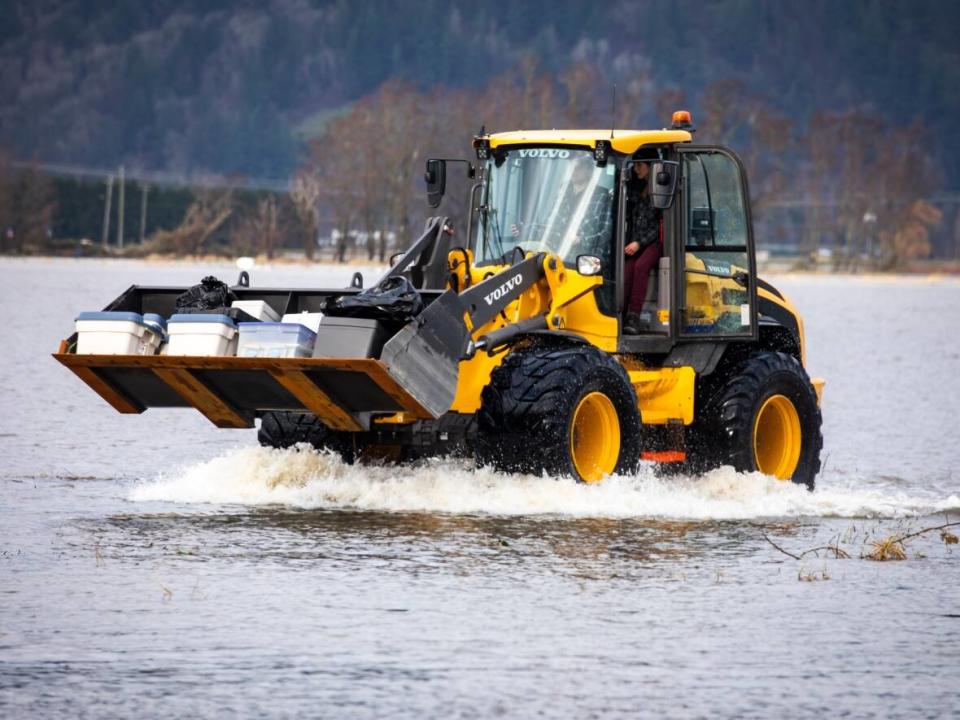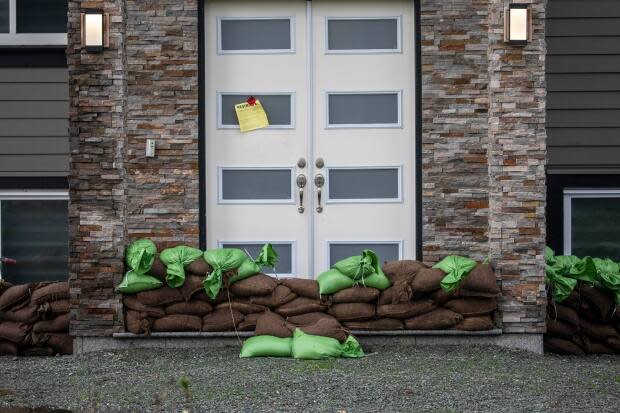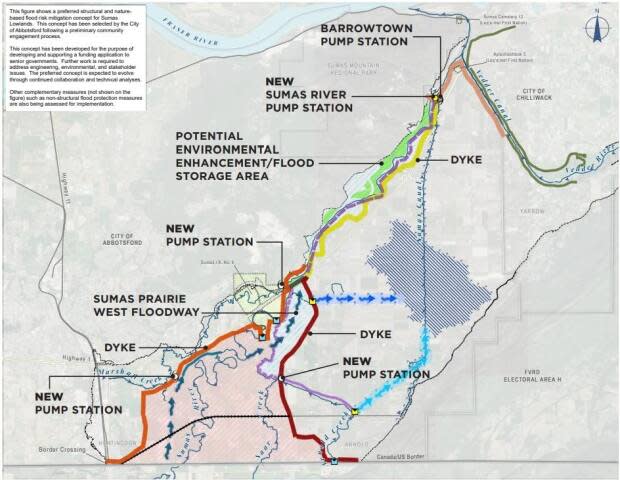Abbotsford approves proposal to overhaul flood mitigation systems in city

Abbotsford council has approved a plan to significantly overhaul its flood prevention systems in a bid to prevent a one-in-200-year flooding calamity in the Fraser Valley city.
The move comes seven months after many parts of the city, 72 kilometres east of Vancouver, were flooded in November. Hundreds were forced to flee their homes and valuable farm crops were destroyed.
Ever since the disaster struck, Abbotsford Mayor Henry Braun has been calling on the federal and provincial governments to assist the city in rebuilding and flood mitigation efforts.
On Monday, city council unanimously approved a motion by staff that would seek to create a new pump station and new dikes, among other large-scale investments. It came after two months of consultation with residents.
"Time is of the essence here," Braun told CBC News. "We don't have decades and we don't have another 30 years.
"We've now got a plan that will take into consideration everything that we have learned over the last 30 years."
The city will now send the plan to the province for funding approval. If funding is approved, construction can start on the new mitigation measures, which include designated areas for floodwaters to flow, know as floodways.

An exact dollar figure wasn't made available by city staff on Monday because the huge overhaul plan approved by the city was a synthesis of multiple previous plans that were sent for public consultation.
Braun told CBC News, however, that the plan is likely to cost more than $2 billion. The most expensive public plan was set to cost $2.8 billion.
Staff said the plan aims to stop one-in-200-year flooding events, though they also note that flood events will become more common because of climate change.
"Staff has addressed an urgent need in a remarkably short period of time," said Coun. Dave Loewen at Monday's meeting.
New pump station
One of the most prominent parts of Monday's plan is a new pump station on the Sumas River to supplement the existing Barrowtown Pump Station on the Sumas Canal.
Barrowtown was nearly breached during the November floods, which would have led to a catastrophic amount of water flowing into the Sumas Prairie, a low-lying region east of Abbotsford city centre.
The Nooksack River, which flows across the Canada-U.S. border, overflowed dikes in other locations to flood Sumas Prairie in November.

"A new pump station … will be able to pump as much water as goes through those floodgates," Braun said. "Which is seven times the pumping capacity of the current Barrowtown Pump Station."
The plan also calls for a series of new dikes along the Sumas River to protect the western part of Abbotsford, as well as protecting the Matsqui dike on the much larger Fraser River.

"We desperately need that [dike]," Braun said.
"If that dike breaks, that'll make the Nooksack flood in Sumas Prairie — as devastating as it was — look like a picnic."
Though most of the plans will take up to seven years to come to fruition, Braun said the city is already prepared for another November, as many dikes have been raised since last year.
Expropriations may be required
To create some of the new mitigation measures, the floodway in particular, Braun said the city would have to "do some work" with the farmers whose lands would be impacted.
"That doesn't mean that they have to leave or tear down their buildings," he said. "It just means that you won't be able to get a building permit for a new house or a new barn."
Parts of the plan call for a voluntary expropriation on the part of certain landowners. Braun said the city would only forcibly expropriate land as a last resort.
"We do have tremendous expropriation powers, no doubt about that," he said.
"But we use it wisely and sparingly. We don't abuse that."

